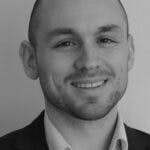Published: 15 February 2019
Last updated: 4 March 2024
Dr David Zyngier, a senior lecturer at Monash University, Associate Professor (adjunct) at Southern Cross University and former principal of Melbourne’s The King David School, said Jewish families were increasingly undergoing financial hardship to pay annual tuition fees.
Three of Melbourne’s Jewish day schools now rank among the ten most expensive schools in Victoria, charging even more than some of the state’s established elitist grammar schools.
At Mt Scopus College, Melbourne’s largest Jewish Day School, has an annual tuition fee for Year 12 of $38,390 (including annual $510 security levy) – making it the most expensive private school in the state after Geelong Grammar.
The King David School (Melbourne’s only Reform school), once considered an affordable option for families seeking a Jewish school education, now ranks among Victoria’s most expensive schools, charging $36,252 (including security levy) per annum for Year 12. Followed closely behind by Bialik College on $35,950.
“We know that private school fees are going up at least five percent each year. We are in a situation of wage stagnation. People’s wages are going backwards. And yet school fees continually rise by more than five percent per annum,” Dr Zyngier said.
“You have to ask, why? Their prime labour costs aren’t increasing. Teacher’s salaries aren’t increasing, they have stagnated. Instead, schools have this militarised escalation of hardware – they are sinking more money into building stock.”
Many Jewish parents were making enormous financial sacrifice. 'I’ve got friends who are my age – in their mid 60s – who are still paying off school fees for their kids that are now having children themselves.'
The rise of Jewish day school fees mirror increases at elite, non-Jewish private schools in Sydney and Melbourne; over the past six years fees have gone up by more than 25 per cent. Dr Zyngier said private schools – Jewish and non-Jewish – were frequently in competition with each other.
“When your competitor builds a new swimming pool, you’ve got to build a new swimming pool. When your competitor builds a new arts centre, you’ve got to do that as well.”
Speaking on the eve of the new school year, Dr Zyngier pointed to the Schooling Student Resource Standard (a standard set by the federal Department of Education and Training) which estimates annual costs to educate an average student per annum, as evidence of overcharging.
For 2019 the Schooling Student Resource Standard (SSRS) base amount set for primary school is $11,343, and for secondary school it’s $14,254.
When Mount Scopus is charging almost $40,000 a year – three times the resource standard required to educate a student – are we getting value for money from an economic proposition? And where is all that money going to?
“When a school like Mount Scopus is charging almost $40,000 a year – three times the student resource standard required to educate a secondary school student – one has to ask, are we getting value for money from an economic proposition? And where is all that money going to?”
Some Jewish day schools have adopted a different approach. Five years ago, Melbourne’s Orthodox Yeshivah-Beth Rivka Colleges introduced a new fee structure that enables parents to pay what they can afford. Dr Zyngier said such an approach would be unviable were it not for the Federal Government’s heavy subsidy of private schools in Australia.
“It’s only possible because they get so much state funding. Yeshiva College (Melbourne) received almost $5.5m capital works funding since 2011 from the public taxpayer. And $12,500 per student in 2016. Beth Rivkah gets more than $11,000 per student from the public. It’s very easy for Beth Rivkah and Yeshivah to take the moral high ground; as most of their funding is coming from the public subsidy.”
He said smaller Jewish day schools, such as Sholem Aleichem, a primary school in Melbourne’s Elsternwick, which charges up to $16,445 annually (including annual levies and charges) for years 5 and 6, would not exist without Government funding of over $8,000 per student and since 2011 over $1m in capital grants.
Dr Zyngier explained that the very generous public subsidy per student enables private schools to accumulate “profit” – the excess between parent fees and public subsidy and what it actually costs to educate a student, and put that towards capital works.
Meanwhile, many Jewish parents were making enormous financial sacrifice. “I’ve got friends who are my age – in their mid 60s – who are still paying off school fees for their kids that are now having children themselves. It’s incredible,” Dr Zyngier said. “Yet the vast majority of Jewish kids my age went to public schools, sent their kids to Jewish youth movements and brought up their kids to be proud of being Jewish”, he added.
“If Jewish parents are really concerned that they want to give their children a Jewish education perhaps they should start by doing that at home, attending synagogue or getting their children involved in Jewish youth movements, instead of abrogating responsibility to the school.”
Findings in the Australian Centre for Jewish Civilisation’s Gen 17 survey reflect a similar picture.
The survey, conducted in early 2017 and released mid last year, found one out of three (32%) households believed the cost of fees prevented them from sending at least one child to a Jewish school. And among households with a child in a Jewish school, over half (55%) said doing so entailed a significant or major financial sacrifice for them.
The survey also found families were looking to others for assistance - 17% of households with a child in a Jewish school relied on grandparents or ‘other family members’ to finance school fees.
“Grandparents are going into hock. If it wasn’t for grandparents many of these kids would never been able to attend these schools,” Dr Zyngier said.
Cartoon: John Kron



